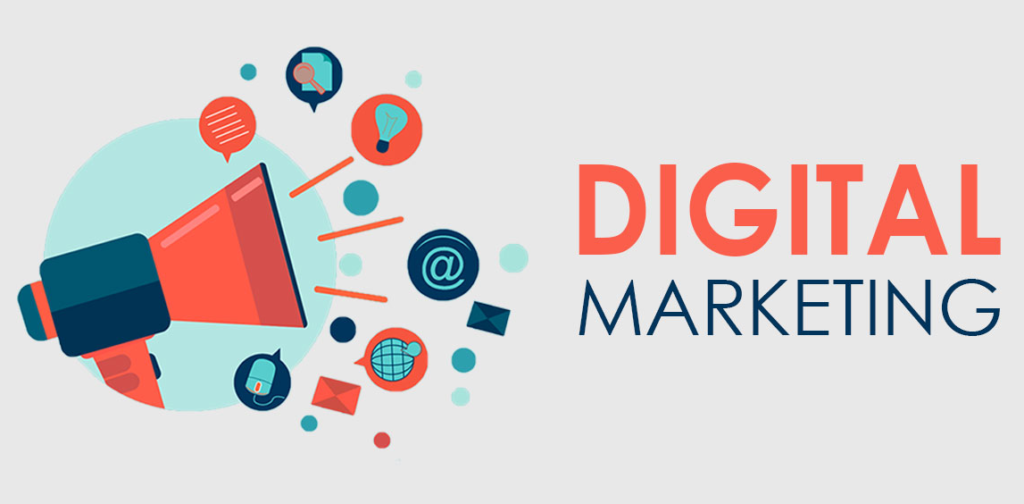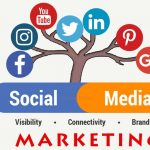Digital Marketing Courses 2021: Free Learning Platforms and FAQs

Digital marketing is the component of marketing that utilizes the internet and online-based digital technologies such as desktop computers, mobile phones, and other digital media and platforms to promote products and services. Continue reading for details on free digital marketing courses and FAQs.
 Its development during the 1990s and 2000s changed the way brands and businesses use technology for marketing.
Its development during the 1990s and 2000s changed the way brands and businesses use technology for marketing.
After all, internet usage has more than doubled over the past decade and this shift has massively affected how people purchase products and interact with businesses.
There are many digital marketing strategies, including:
Search engine optimization (SEO)
Display advertising
Social media marketing and advertising
Content marketing
Mobile marketing
Search engine marketing
Email marketing
Here are free and paid digital marketing courses and platforms you should enroll in:
1. Fundamentals of digital marketing
Here you will master the basics of digital marketing with our free Interactive Advertising Bureau-accredited course.
There are 26 modules to explore, all created by Google trainers, packed full of practical exercises and real-world examples to help you turn knowledge into action.
Getting certified shows employers that you have a clear understanding of the core concepts of digital marketing. You can also add the qualification to your CV, and easily upload it to your LinkedIn profile.
These courses are certified by Google Digital Skills For Africa. They include the following:
Search Engine Optimization (SEO)
You’ve likely heard of the term SEO but maybe you weren’t sure what it means. SEO stands for search engine optimization and it’s the act of increasing the quantity and quality of traffic to your website through organic search engine results.
While there are a few search engines out there, the most popular is Google. An effective SEO strategy follows specific guidelines and best practices that will ensure a website ranks on the first page of search engine results.
To rank on the first page of the search engine, you need to structure your website and pages to attract organic traffic.
Without SEO, it’s almost impossible to grow an online business organically and you’ll need to also use paid advertising.
SEO is also closely related to other digital marketing elements like email marketing and content marketing. They work together to give customers high-quality content.
An effective SEO campaign addresses three key elements: your website, Google, and your audience. Google then ranks your site when a search query that matches your focus keyword is entered.
You might be wondering, how Google does that. When Google bots assess your site, they take into consideration the site’s structure and content.
They then match your content with search queries and related keywords to determine how relevant your content is to these questions Google also checks for quality links to your website—links tell Google that other people value your content and that it’s a reliable source of information.
Several good-quality links directed to your site will increase your chances of a higher Google rank. Not all links are good for SEO—links from high authority sites, like news organizations and professional associations, are what Google considers good signals.
Search Engine Marketing
Search engine marketing, also known as SEM or search marketing, refers to all the processes involved in generating traffic from search engines
SEM includes SEO (which to some extent is theoretically true), but practically, it is quite different. The core of an effective SEM strategy is paid advertising through platforms like Google Ads or Bing Ads.
Email Marketing
According to research from Campaign Monitor, every $1 put into email marketing generates $38.
For this reason, email marketing is one of the most popular digital marketing techniques among digital marketers. It is so popular that 82 percent of B2B and B2C companies are using it.
Successful email marketing campaigns share relevant, timely information that is personalized to the recipient.
Segmentation is an essential component of email marketing; it ensures that you’re reaching the right people at the right time.
When you understand their position in the buyer’s journey, you can email them information to help them make a purchasing decision.
Educational content can come in many forms, but emails typically share blog articles, white papers and eBooks, and webinar offers. Instead of sending links to external content, you can also write robust newsletters that educate.
In addition to educational content, you can inform them about promotional offers in an attempt to persuade them to take action.
Content Marketing
Wikipedia defines “Content marketing as any marketing format that involves the creation and sharing of media and publishing content to acquire customers
Content marketing is permission-based marketing. Potential clients opt-in to this type of marketing and sometimes share it.
To gain the trust of your potential customers, you need to be able to provide them with something relevant; content marketing is built on this idea. Content marketing should be helpful while subtly guiding readers in their decision-making process.
According to the Content Marketing Institute, “Content marketing is a marketing technique of creating and distributing relevant and valuable content to attract, acquire, and engage a clearly defined and understood target audience–to drive profitable customer action.”
For example, I sell T-shirts online. Instead of focusing on my landing page and product description, I can direct my effort into content which my prospective customers may read before trying to make the purchase.
Social Media Marketing
Social media marketing involves the use of social media platforms as channels to reach large audiences.
On social platforms, you can grow an organic audience of followers or you can use paid social advertisements to reach your target demographic.
Most brands use both strategies, as they work well together. The most popular social media platforms, Facebook and Twitter, have more than 2 billion and over 330 million users respectively.
Most businesses using social media marketing understand the importance of engaging their target audience and doing it consistently.
Therefore, creating engaging videos and high-quality content with amazing deals and offers for your audience will help you to increase brand awareness and generate more conversions.
Are you starting to see how these digital marketing tactics work together? A successful social media strategy needs high-quality content to engage followers.
The same goes for email marketing. Brands must create content and then distribute it through other digital channels.
Digital Advertising
Digital advertising can also be referred to as paid advertising. It refers to every strategy and process involved in generating referral traffic to your site via paid digital display ads.
Marketers often conduct digital advertising on different platforms, depending on where their target audience is most concentrated. Some of these platforms include:
Google (Adwords), Facebook, YouTube, Pinterest, LinkedIn, and Twitter.
Mobile Marketing
Mobile marketing, as the name implies, is a digital marketing technique that involves marketing strategies focused on mobile users.
Research shows that more than 80 percent of internet users own a smartphone, so this is an important niche to reach out to. In this case, the marketing strategies are mobile-based. Examples are; SMS, MMS, mobile apps, and websites
Kindly share and subscribe to our content.





